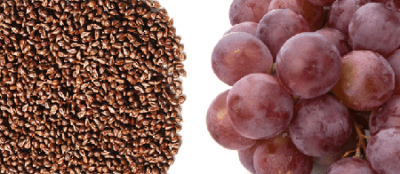As a means to ending the third most common cancer in Nigerian men (after prostate and liver cancer) and the fourth most common cancer in Nigerian women (after breast, cervical and liver cancer) scientists have found a compound that suppresses colon cancer stem cells in grapes.
Available records revealed that a Nigerian is diagnosed of colon cancer every two hours, making the findings a crucial one Nigerians, though it was discovered by American researchers.
It is also on record that about 80 per cent of all Nigerians who are diagnosed of colon cancer die from it. This is very unfortunate; given the fact that colon cancer is one of the cancers that is virtually 100% preventable.
Worried by the prediction of the American Cancer Society that in 2017, more than 95,500 people will develop cancer of the colon, almost 40,000 people will have rectal cancer and more than 50,000 deaths will be caused by colorectal cancer, the research team led by Jairam K. P. Vanamala, associate professor of food sciences at the College of Agricultural Sciences at Pennsylvania State University in State College, set out to examine the effects of grape compounds on colon cancer stem cells.
The study, published in the journal BMC Complementary and Alternative Medicine and reported on DailyMailOnline revealed that the researchers tested the effect of a combination of resveratrol – a polyphenolic compound found in grapes, red wine, peanuts, and some berries – and grape seed extract.
“Cancer stem cells are capable of self-renewal, cellular differentiation, and maintain their stem cell-like characteristics even after invasion and metastasis,” Prof. Vanamala explained
To arrive at their result, the researchers examined 52 mice with colon cancer tumors. They divided the rodents into three groups: one group was fed the grape compound combination, another group was fed sulindac (an anti-inflammatory drug previously found to reduce tumors in humans), and one group was given a normal diet.
They found that the number of tumors in the mice that had the grape compound diet decreased by 50 percent. This drop was similar to the one seen in the sulindac group, but unlike the anti-inflammatory drug, the grape compounds did not cause any gastrointestinal toxicity.
In vitro, the experiments yielded similar results, determining the “molecular basis for the beneficial effect” of the grape compounds on human cancer stem cells.












buy cheap prescription drugs online india pharmacy mail order
tadalafil daily use: http://tadalafilonline20.com/ buy tadalafil us